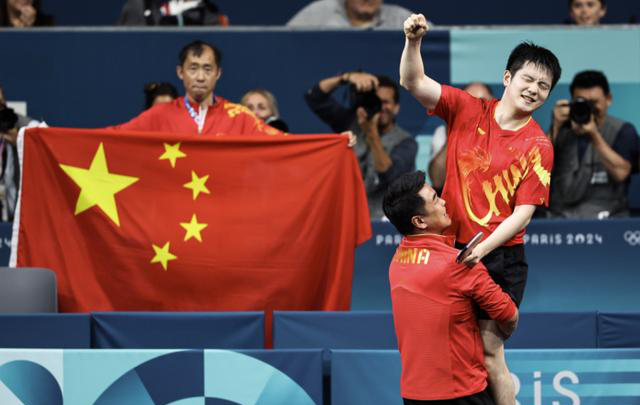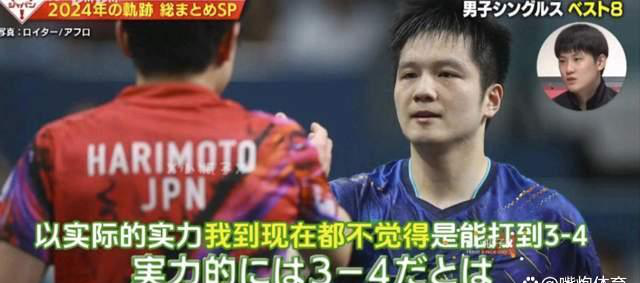Fan Zhendong's withdrawal from the world rankings has caused a stir in the table tennis community, leaving everyone unsettled. Some say he is being capricious, while others believe he is brave; it's like a pot that has exploded, and no one can tell whether it's right or wrong.
The international table tennis scene in recent years has been quite interesting, with Fan Zhendong acting as a stabilizing force, making everyone who faces him weigh their options. This time, his sudden decision to stop playing has tilted the balance of the entire table tennis world.
Foreign association players have had a tough time against Fan Zhendong over the years. Just seeing him across the court during matches makes them want to retreat mentally, and this invisible pressure is more effective than winning any number of games.
Now that Fan Zhendong has withdrawn from the world rankings, it means he won't be seen on the international stage anymore. For those foreign association players, their psychological burden has significantly减轻ed, and games they previously thought they couldn't win, they might now dare to try.
The situation for the national team is somewhat troublesome. Ma Long is not young anymore, and he's playing fewer and fewer matches. Now that Fan Zhendong has also withdrawn from the world rankings, the team has lost two mainstays at once.
Although the young players are all very capable, it remains to be seen if they can completely replace Fan Zhendong's position. After all, Fan Zhendong's dominance on the international stage over the years is not something that can be easily replaced.
Recently, the veteran player Timo Boll has spoken up, saying that what Fan Zhendong did is actually good because there are indeed problems with the current competition system. Players are almost being drained dry, especially those young players with little savings.

The WTT format is indeed a bit excessive, with fines being imposed frequently. For Fan Zhendong, it may not mean much, but for ordinary players, it's a significant expense. Such a system, if continued long-term, is not beneficial for the development of table tennis as a whole.
Fan Zhendong's withdrawal is also a practical protest against this unreasonable system. Although he may miss many competition opportunities as a result, someone needs to speak out for the entire table tennis world.
The young players in the national team are all very talented, but it will take some time for them to fully take over Fan Zhendong's position. They need to undergo training and growth.
In the past, with Fan Zhendong around, foreign association players would feel intimidated when they saw the Chinese team. Now, this psychological advantage may not be as obvious, which is indeed a considerable challenge for the national team.
Although Ma Long is still playing, his age is a factor, and he can't play every match like before. Now that Fan Zhendong has withdrawn from the world rankings, the national team's dominance on the international stage will indeed be affected.
The young players now need to work even harder because the heavy responsibility will fall on their shoulders in the future. Although there is pressure, this is also an opportunity for their growth.
Table tennis competitions are becoming increasingly commercialized, and players' rest time is being severely compressed. To pursue viewership and commercial value, matches are scheduled very densely.

In such circumstances, the physical condition of the players is quite concerning, especially for the main players who compete year-round, as injury problems are becoming more prominent.
Fan Zhendong's decision this time is also a reminder to everyone that athletes are human too and need reasonable rest and adjustment; we cannot only think about commercial interests.
The national team players are relatively better off, at least with the system's protection. However, it's tough for freelance players, who must consider both their competition results and livelihood issues.
The current format is particularly unfriendly to freelance players, with fines being imposed frequently, along with competition fees and training costs. Many players are almost unable to continue.
If this situation continues, it may affect the development of table tennis as a whole, after all, not every player can confidently say they won't play like Fan Zhendong.
Fan Zhendong's decision has also given other athletes a wake-up call, which is to learn to take responsibility for their careers and not passively accept arrangements.
Athletes' peak periods are only a few years, so how to reasonably arrange competition and rest times and plan their career development are issues that need serious consideration.
The issue of transformation after retirement is also crucial; one cannot wait until actual retirement to start considering these things. All of these require advance preparation and planning.